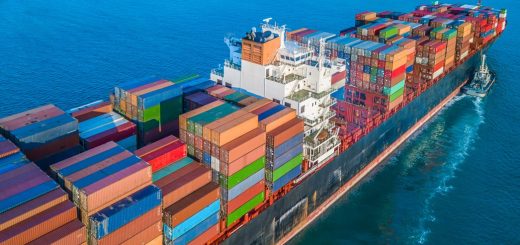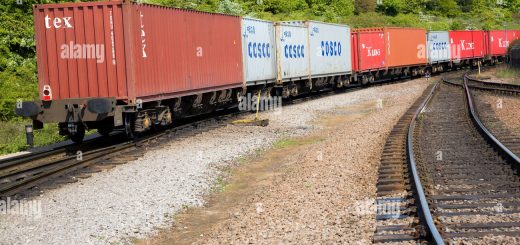Canadian DIYers: Consolidate Home Improvement Goods from China for Renos in Vancouver
Introduction
For Canadian DIY enthusiasts in Vancouver, importing home improvement goods from China can be a cost-effective solution for renovation projects. Whether you’re upgrading your kitchen with smart appliances, installing solar panels, or sourcing eco-friendly building materials, consolidation services offer a streamlined way to cut costs and avoid hidden fees.
However, navigating Chinese manufacturing, logistics providers, and Canadian customs can feel overwhelming. This guide will show DIYers in Vancouver how to consolidate shipments efficiently, optimize pricing, and leverage 2025 trends to transform your home improvement projects without breaking the bank.
Why Consolidation Works for Vancouver DIYers
1. Cost Savings for Smaller Shipments
- LCL (Less Than Container Load): Ideal for small-batch orders (e.g., 10–20 CBM of LED lights, smart thermostats, or reclaimed wood).
- Example Pricing:
- China–Vancouver LCL: 80–80–150/CBM (vs. 3,000–3,000–4,500/TEU for FCL).
- Benefits:
- Lower upfront costs for DIY projects.
- Flexible delivery schedules for non-urgent renovations.
2. Access to Affordable Chinese Products
- Popular Items for Vancouver Renos:
- Solar Panels: Up to 30% cheaper in China than Canada.
- Smart Home Devices: LED lighting, thermostats, and security systems at half the local price.
- Eco-Friendly Materials: Recycled tiles, bamboo flooring, and low-VOC paints.
- Why Choose China?:
- Mass production reduces unit costs.
- Customizable products (e.g., custom shelving, modular furniture).
3. Vancouver’s DIY Scene Needs Consolidation
- High Demand for Renovations: Post-pandemic, 65% of Vancouver homeowners plan major renovations in 2025.
- Local Challenges:
- Expensive materials in Canada (e.g., copper piping, granite countertops).
- Long lead times for specialty items (e.g., artisanal tile mosaics).
- Consolidation Solves These Issues:
- Combine small orders to reduce per-unit costs.
- Faster delivery via direct China–Vancouver routes.
Common Challenges and How to Avoid Hidden Fees
1. Hidden Fees to Watch For
- Port Surcharges:
- Vancouver Port: 200–200–350 per container for congestion or security fees.
- Customs Brokerage Fees:
- 75–75–200 per shipment for documentation or duty calculations.
- Storage Charges:
- 15–15–25/day for warehousing if shipments arrive before final delivery.
- Fuel Surcharges:
- 3–6% of base freight cost for oil price fluctuations.
2. Why These Fees Happen
- Supply Chain Complexity: Multiple intermediaries (e.g., freight forwarders, customs brokers) add layers of costs.
- Regulatory Compliance: Changing tariffs and documentation requirements increase administrative overhead.
- Market Volatility: Container shortages or port congestion lead to emergency fees.
Strategies for Transparent Pricing in China Consolidation
1. Choose a Transparent Logistics Partner
- Verify Fee Structures:
- Ask for itemized quotes (e.g., freight cost, port fees, insurance).
- Avoid providers with “all-inclusive” pricing that hides last-minute charges.
- Leverage Technology:
- Use platforms like Flexport or DB Schenker for real-time cost tracking.
- Blockchain-based invoices (e.g., IBM TradeLens) to audit fees.
2. Optimize LCL vs. FCL for Cost Control
| Method | Best For | Cost (China–Vancouver) | Hidden Fees Risk |
|---|---|---|---|
| LCL (Less Than Container Load) | Small batches (1–10 CBM) | 80–80–150/CBM | Low (standardized fees) |
| FCL (Full Container Load) | Large volumes (10+ CBM) | 3,000–3,000–4,500/TEU | High (port, storage, fuel surcharges) |
- When to Choose LCL:
- Mixed Cargo: E.g., 5 CBM of smart thermostats + 3 CBM of bamboo flooring.
- Budget Constraints: Perfect for small-scale DIYers or seasonal projects.
- When to Choose FCL:
- High-Value, Single-Type Goods: E.g., 15 CBM of solar panels for eco-renovations.
- Time-Critical Deliveries: Needed for product launches or inventory restocking.
3. Leverage Free Trade Zones and Duty-Free Thresholds
- Free Zones for Cost Savings:
- Vancouver Free Zone: $5/day storage for up to 90 days.
- Duty-Free Thresholds:
- Canada: $1,600 threshold for personal imports (e.g., individual buyers, gifts).
- Use CETA/CCFTA Tariff Reductions:
- 0% tariffs on textiles, plastic components, and electronic parts.
4. Optimize Packaging to Reduce Costs
- Standardized Packaging:
- Use 40cm x 30cm x 20cm cartons to avoid overpacking fees.
- Anti-static bubble wrap for delicate electronics.
- Climate-Controlled Storage:
- Essential for temperature-sensitive goods (e.g., lithium batteries).
Case Studies: Vancouver DIYers Save with Consolidation
Case Study 1: Solar Panels for a Green Renovation
- Challenge: Unexpected port fees increased total costs by 20%.
- Solution:
- Partnered with Flexport for itemized cost tracking.
- Opted for LCL to avoid FCL surcharges.
- Outcome: Saved $3,200 on a 12 CBM shipment of solar panels.
Case Study 2: Smart Home Devices for a Tech-Savvy Reno
- Challenge: Hidden customs brokerage fees added $1,500 to the bill.
- Solution:
- Used DPD’s transparent customs service with flat-rate fees.
- Consolidated 4 small orders into one LCL shipment.
- Outcome: Reduced total costs by 25%.
2025 Trends in Transparent Pricing for China Consolidation
- AI-Driven Pricing Tools
- Flexport’s AI Pricing Engine: Predicts real-time costs based on route, volume, and seasonality.
- Blockchain for Fee Transparency
- Immutable invoices (e.g., IBM TradeLens) to audit all charges.
- Green Logistics for Cost Savings
- Carbon-neutral routes (e.g., DPD Green Shipping) to avoid environmental taxes.
- Smart Contracts for Fixed Pricing
- Automated agreements to lock in rates and prevent last-minute surcharges.
Common Mistakes to Avoid
| Mistake | Solution |
|---|---|
| Overpacking Boxes | Use standard-sized cartons (e.g., 40cm x 30cm x 20cm). |
| Ignoring Temperature Control | Opt for climate-controlled containers for delicate fabrics. |
| Skipping Insurance | Always purchase All Risks coverage for valuable items. |
| Missing Labels | Print ISO-standard fragile labels in English. |
| Neglecting Customs Compliance | Work with local customs brokers (e.g., UPS Trade Compliance). |
Conclusion
For Vancouver DIYers, transparent pricing in China consolidation is a game-changer for cost-effective home improvements. By choosing reliable logistics partners, optimizing LCL/FCL strategies, and leveraging 2025 technologies, you can avoid hidden fees, reduce costs, and ensure timely delivery.
Take Action Now:
- For 2025 shipments: Start auditing your logistics providers by October 2025.
- Partner with transparent platforms like Flexport or DB Schenker to cut costs and meet compliance goals.


